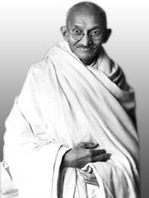 The well-known Gandhi Irwin Pact was a significant point in India`s struggle for independence. Mahatma Gandhi and the then Viceroy of India Lord Irwin on signed this historic pact on 5th March 1931.
The well-known Gandhi Irwin Pact was a significant point in India`s struggle for independence. Mahatma Gandhi and the then Viceroy of India Lord Irwin on signed this historic pact on 5th March 1931.
This political agreement put forward certain specific action points to be initiated by the colonial government of India as well as the Indian National Congress. The important points those are discussed in the Pact are as follows:
Discontinuation of the civil disobedience movement by the Indian National Congress, participation in the Round Table Conference by the Indian National Congress, the removal of the salt tax which allowed Indians to produce, trade, and sell salt legally for their own use, the release of prisoners arrested for participating in the civil disobedience movement, removal of all ordinances issued by the British Government imposing curbs on the activities of the Indian National Congress and removal of all prosecutions relating to several types of offences except those involving violence.



















